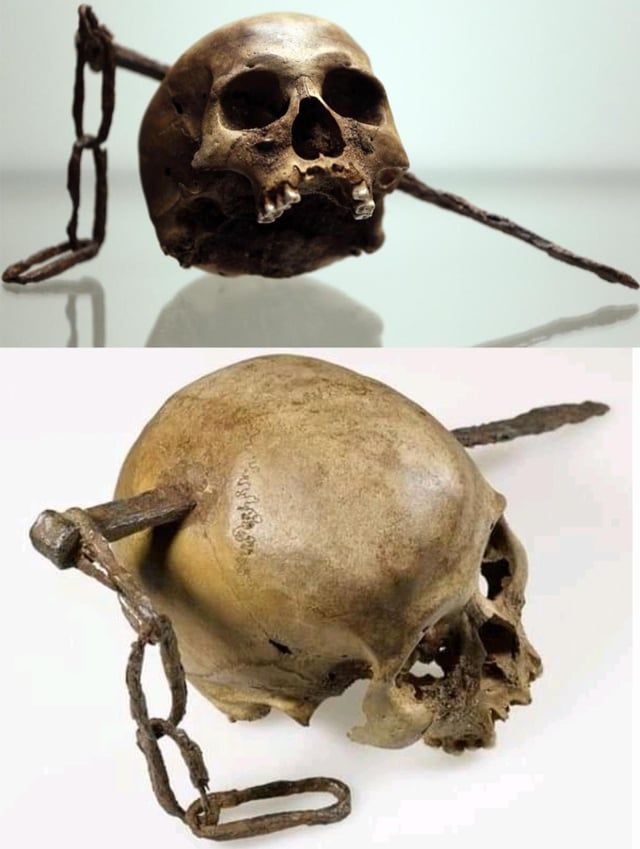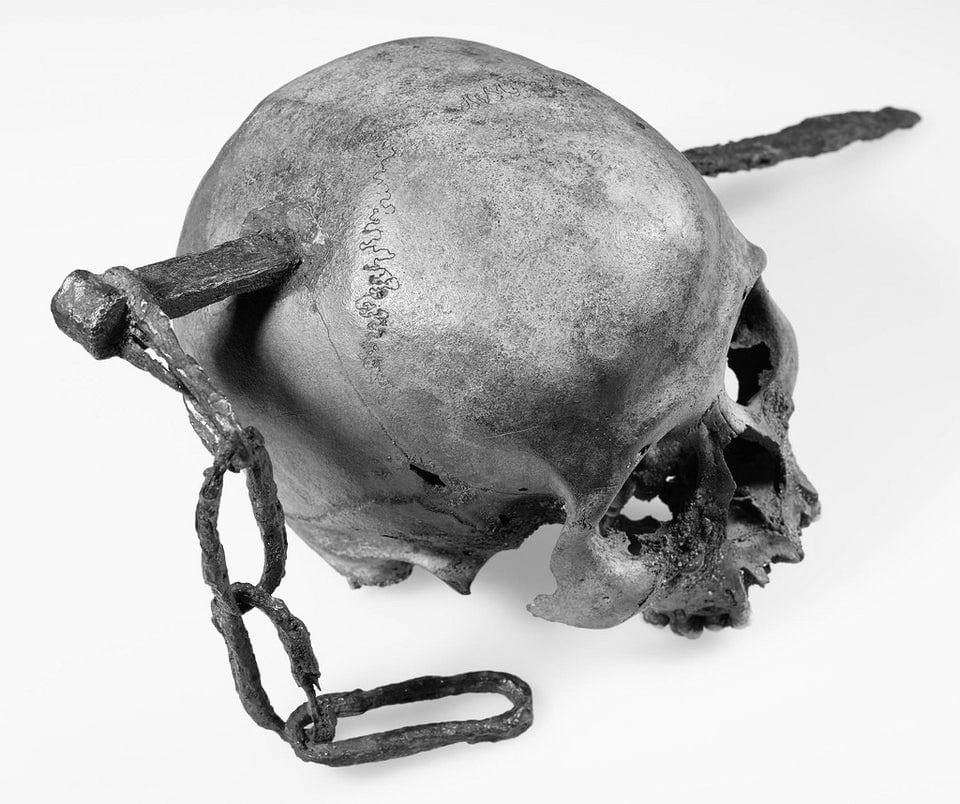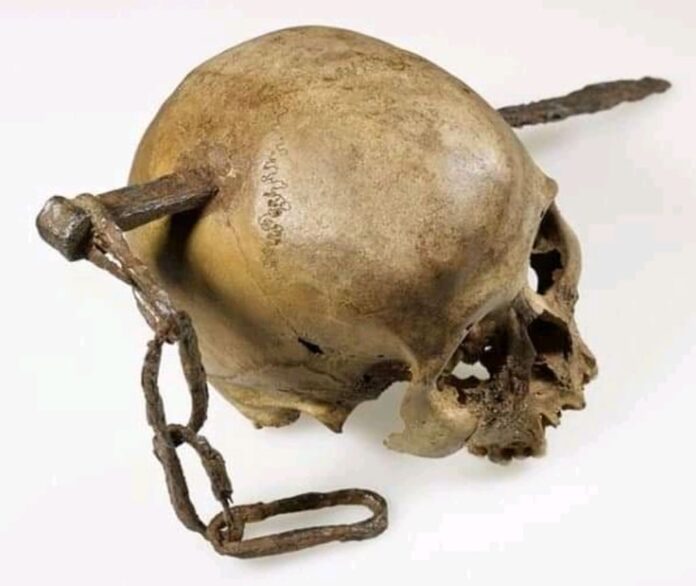Archaeological discoveries have always been fascinating to human beings as they provide us with valuable insights into the past. Recently, an intriguing Roman-era discovery has come to light: a skull impaled with a large spike. This captivating find is currently on display at the Rheinischen Landesmuseum in Bonn, Germany. The discovery has garnered significant attention and curiosity from people worldwide. In this article, we will explore the history and significance of this discovery.
Discovery:
The discovery of the skull impaled with a large spike dates back to the Roman era, around the 1st or 2nd century AD. The skull was found in a cemetery near the ancient Roman city of Bonn, which was known as “Bonna” in Roman times. The cemetery was unearthed during excavations carried out in the 1980s and 1990s and contained the remains of over 250 individuals.

The skull was discovered in a separate burial pit, away from the other graves. The pit was small and contained only the skull, which was impaled with a large iron spike. The spike had been driven through the skull from the back and protruded out of the mouth.
Initially, the discovery of the skull impaled with a spike was thought to be an execution, as such practices were common during the Roman era to execute criminals. However, further investigation revealed that the individual was not a criminal but rather a soldier.
Forensic Analysis:
Forensic analysis of the skull revealed that the individual was a young man, around 25-30 years old. He was in good health at the time of his death, and there were no signs of disease or injury on his bones. The spike was found to be 22 centimeters long and 2.5 centimeters in diameter, and it had been driven through the skull with great force.

The position of the spike suggested that the individual had been impaled from behind, possibly with his hands tied. The spike had entered the skull from the back and passed through the brain, causing instant death.
The forensic analysis also revealed that the individual had suffered from a dental abscess, which would have caused him a great deal of pain. The abscess had not been treated, and it is possible that it may have contributed to his death.
Significance:
The discovery of the skull impaled with a spike is significant for several reasons. Firstly, it provides us with valuable insights into the lives of people during the Roman era. The fact that the individual was a soldier suggests that he was part of the Roman military presence in the area. The spike may have been used as a punishment for desertion or other military offenses.
Secondly, the discovery highlights the brutality of the Roman era and the harsh punishments inflicted on those who disobeyed the law. Impalement was a common punishment during the Roman era and was used for a variety of offenses, including treason, murder, and desertion.
Thirdly, the discovery challenges our perceptions of the Roman era as a time of sophistication and enlightenment. The Roman Empire was known for its advancements in architecture, engineering, and philosophy, but it was also a time of great violence and cruelty.
Conclusion:
In conclusion, the discovery of the skull impaled with a spike is a fascinating and significant archaeological find. It provides us with valuable insights into the lives of people during the Roman era and highlights the brutality of the time. The discovery challenges our perceptions of the Roman era as a time of sophistication and enlightenment and reminds us of the harsh realities of life in the ancient world. The skull is currently on display at the Rheinischen Landesmuseum in Bonn, Germany, and it is sure to continue to attract attention and curiosity from people worldwide.




